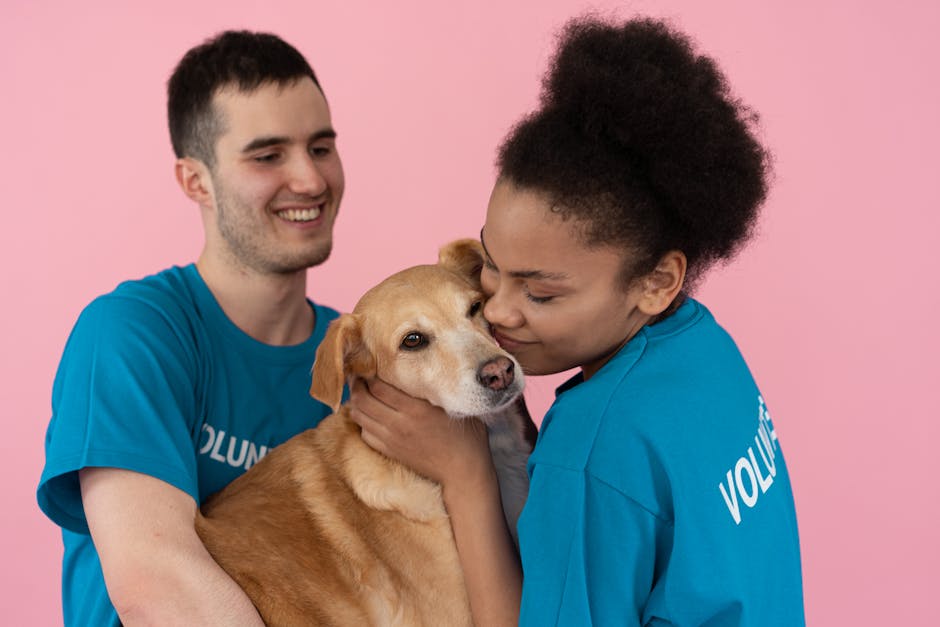Finding a loving home for a pet in need is a deeply rewarding experience. However, the landscape of animal adoption is not uniformly positive. Many organizations exist, but not all operate with the same commitment to animal welfare and transparency. So, how can prospective adopters identify reputable organizations dedicated to providing safe, responsible, and ultimately happy outcomes for animals?
A critical first step in this process is understanding the crucial factors that distinguish a trustworthy shelter or rescue from one that might not prioritize animal well-being. This includes scrutinizing their practices, looking for verifiable expertise, and engaging with their community.
Recognizing the Red Flags: Identifying Potential Issues
Potential adopters should be cautious of organizations lacking a clear, transparent approach to pet adoption. Signs to be wary of include a lack of information about the animals’ history, limited details on the organization’s operations, and a reluctance to provide prospective adopters with specific details about the animals. Moreover, an organization that doesn’t readily share information about its funding sources or its veterinary care procedures should raise concerns. Similarly, a shelter that doesn’t stress the importance of pre-adoption screening or proper home visits hints at a potential issue.
Scrutinizing the Procedures: Key Indicators of Reputable Adoption Organizations
Trustworthy animal adoption organizations meticulously manage their processes to ensure the animals’ well-being. Robust screening procedures are paramount. A reputable organization will thoroughly vet prospective adopters. This often involves interviews, home visits, and sometimes even background checks. The aim is to ensure that the animal will find a suitable and caring home. Similarly, transparent communication is vital. A good organization proactively shares information regarding animal histories, medical records (where permitted), and temperaments. They don’t shy away from discussing potential challenges or specific needs an animal may have.
Beyond the Basics: A Deeper Look at Excellence
Reputable organizations frequently embrace holistic approaches to pet care, extending beyond basic needs. Compassionate attention to a pet’s specific behavioral needs often distinguishes exceptional organizations. Some leading shelters and rescues invest in behavioral assessments and training programs for the animals under their care. This commitment to addressing individual challenges ensures that the animals, upon adoption, are more likely to thrive in their new environment. An organization that offers ongoing support to adopters after the adoption is also a hallmark of trust. Such follow-up can range from providing resources to answer questions to arranging for check-ins to ensure the animal’s adjustment is progressing smoothly.
Local Resources: Leveraging Community Support
Investigating local shelters and rescues is crucial. Consult local animal control organizations or humane societies. These entities often have strong ties to reputable adoption organizations in their region. Networking within pet-focused communities can also yield valuable insights into organizations that are well-regarded. Online platforms dedicated to animal welfare often have forums or review sections where individuals can share their experiences with different organizations. Positive feedback from other adopters can be an invaluable asset in guiding you toward truly caring entities.
A commitment to transparency also encompasses detailed financial information. Look for organizations that are forthcoming about how they spend donations and their overall budgetary framework. A transparent approach to finances is a sign that they prioritize the well-being of the animals and don’t prioritize personal gain.
Embracing Technology: Utilizing Online Resources
Harnessing the power of the internet is essential in this quest. Websites and social media pages of potential adoption organizations provide valuable information regarding their services and the animals available for adoption. Actively engaging with these platforms allows you to assess their commitment to transparency and community outreach. Reputable organizations often maintain detailed profiles for each animal, outlining their history, personality traits, and any special needs. Be cautious of organizations that present a very limited image of each animal, as this could suggest that the animal’s needs and history are being downplayed.
Beyond the Search: Ongoing Support for the Adopted Animal
The process of adoption doesn’t conclude with the signing of paperwork. Supportive organizations often provide ongoing support. This could include access to a network of veterinarians, resources on pet care, and forums for adopters to connect and share experiences. Such assistance fosters a lasting and mutually beneficial relationship between the adoptive family and the organization.
Final Thoughts: A Choice with Consequences
Choosing an adoption organization isn’t just a decision; it’s a commitment to an animal’s well-being. By understanding the factors that distinguish reputable organizations, prospective adopters can confidently select shelters and rescues that prioritize animal welfare and foster a strong support system for both the animal and the adopter. This thoughtful approach not only offers a loving home to a deserving animal but also lays the foundation for a rewarding and long-lasting bond between pet and owner. Ultimately, finding trustworthy animal adoption organizations is about finding organizations that prioritize compassion, transparency, and the welfare of animals.












